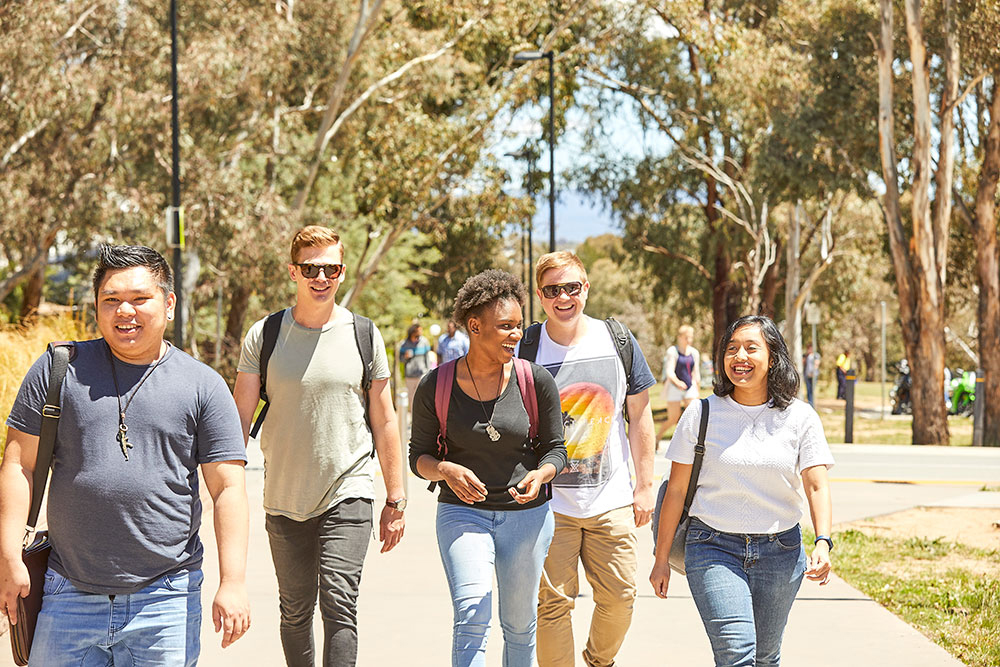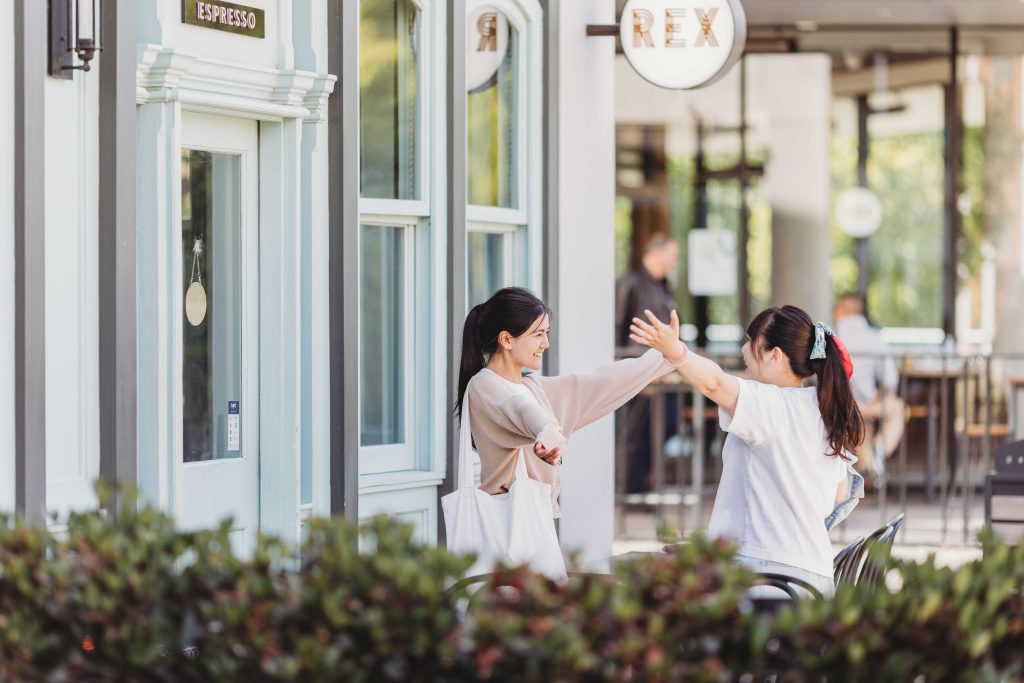
Student Guide
Created by local experts, find out more about the city and how to enjoy your time studying and living in Canberra.
Read moreSkip to main content


We acknowledge the Traditional Custodians of the ACT, the Ngunnawal people and recognise any other people or families with connection to the lands of the ACT and region.
It’s perhaps one of the most exciting steps we take in our adult life, where we start out on a path to independence.
From those first friendships, the excitement of having your own space and exploring a new city or suburb – there’s a lot to look forward to when moving. But there is also a lot to plan.
Here are some things to keep in mind to make your transition as seamless and as stress-free as possible.
A popular form of accommodation for young Canberrans, a share house is exactly that. You’ll live with other people in a house or apartment and share spaces like the kitchen and bathrooms. This could be with friends or, in most cases (particularly for those new to Canberra), living with strangers. There are a lot of benefits to this type of accommodation.
For one, these ‘strangers’ can quickly transform into lifelong friendships. And rooms are typically cheaper than on-campus accommodation with additional perks such as bigger shared spaces, dishwashers, washing machines and even backyard areas to enjoy.
But before you move in, make sure you visit your potential new room in person – pictures might not tell you the whole story. An in-person visit is also a great way to meet your housemates and get a better sense of their personalities and work schedules.
Websites like Gumtree, flatmates.com or flatmatefinders.com.au are a good place to start, with prices ranging typically from $190 to $700 per week.

Living in student accommodation has endless benefits. Living alongside peers is a great way to make friends, get involved in social activities and start building those critical extended networks in Canberra. And its purpose built for students.
Depending on the accommodation and the location, prices can range from $250 to $500 per week. If that is outside your budget, relocation scholarships – particularly for rural students – can help with these costs.
Canberra’s two largest universities, the University of Canberra and the Australian National University offer guaranteed accommodation for first-year domestic and international undergraduate students. The Australian Catholic University also offers student accommodation at the Watson campus.
Want the on-campus experience with additional perks? Look no further than a Residential College. A college will include social activities, meals, regular cleaning, and a lot of other perks. However, they are a bit more expensive, costing between $400 and $700 per week.
Colleges are different at each university, so be sure to research what colleges are available at your university and what they are like. You’ll find links on our Universities page.

If you are looking for your own space, then a private rental might be worth extending your budget for. You’ll be looking at paying from $500 a week but finding one or two other roommates could make it cheaper. Bear in mind you’ll be competing with non-student renters to secure a private rental property. If you have rented before, a good rental reference will be a big plus.
If you need help finding accommodation to match your lifestyle and the right suburb for your study needs – our Living in Canberra page can help guide you in the right direction. Below we’ve also included some questions and links to help you understand how to get the rental that’s right for you.
Homestay is an excellent way to maintain the comforts of family support, and if you’re moving from overseas it can be a great way to immerse yourself in Australia. It can also be a great starting option for new students, so that once you have learned about the city and built a network, you can look for something more long-term.
Make sure you connect to homestay through an official provider, such as the Australian Homestay Network. Prices range from $250-$350 per week, so your bank account will also be thanking you.
While terrible housemates are a great way to gain some hard-earned wisdom, it’s wisdom you could definitely live without. Here’s a few tips to help make your experience as seamless as possible.

Not only will your parents be impressed, but by asking these questions, you are also ensuring an enjoyable long-term living situation and positive Canberra experience.
For most accommodation, signing a lease will be mandatory before moving in. It’s basically a legally binding document that means you must stay at your new accommodation for a specific period of time. It will also include things like the costs for property damage, losing your room key etc., late fees if rent isn’t paid, and details around when a tenant can be evicted.
You have rights as a renter, which you can learn about from the ACT Government. If you feel like you’re not being listened to or taken advantage of, or need advice on your rights as a tenant, the Tenancy Advice Service at Legal Aid can offer advice over the phone for free.
For share house houses, you may or may not need to sign a lease – which is something you should check before moving in. While there are benefits to both (not being on the lease means that you can move out at any time), if you are planning on getting student payments through Centrelink, not being on the lease may cause significant issues. By planning ahead, you can prevent yourself from facing any of these issues.
Canberra is a very safe city. However, ever city including ours can have safety incidents.
While you may know Canberra because of Parliament House – or even our roundabouts – it’s important to do your research to understand where you are planning on living. You can do this by searching the internet, asking friends, asking for advice from your university, or reaching out on social media.
If you live close to the city, for example, it might mean planning rides home after dark so you don’t have to walk, checking your home has sensor lights, and letting your friends or housemates know where you are. Want to know more? Head to our Community Safety page up to date information.
Unless you have your own vehicle, you should consider access to public transport. While Canberra’s light rail is expanding, not all areas have access to it yet. If this is the case for your accommodation, buses and/or a bicycle will be your best friend. Read our navigating transport in Canberra page for more.
Take your time to explore your area. This means finding your closest supermarket, walking tracks (Canberra has an abundance), bus stop, favourite cafes, and local gym or yoga studio. Canberrans don’t like long commutes either – become one of us by finding accommodation near the places you need to be most often.
It can be frustrating moving into your dream accommodation only to find cracked tiles or a leaking tap. It will only take a few minutes, but it’s well worth checking your heating and cooling, dishwasher, lights, and taps are all in working order when you first move in. Go forth and channel your inner builder – future you will breathe a sigh of relief.